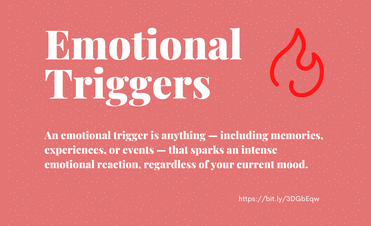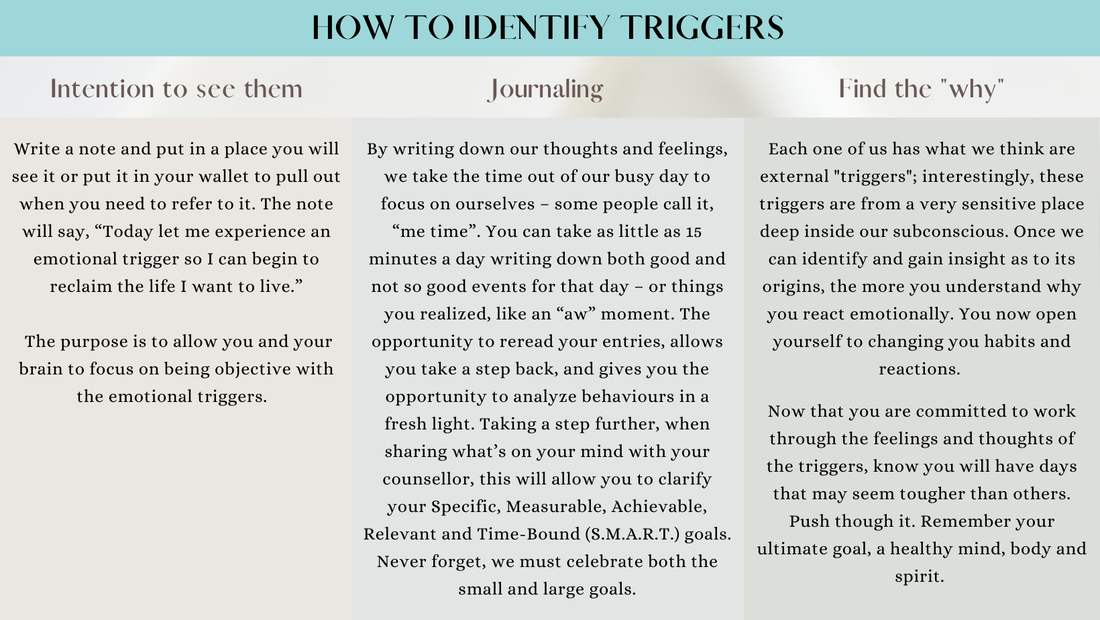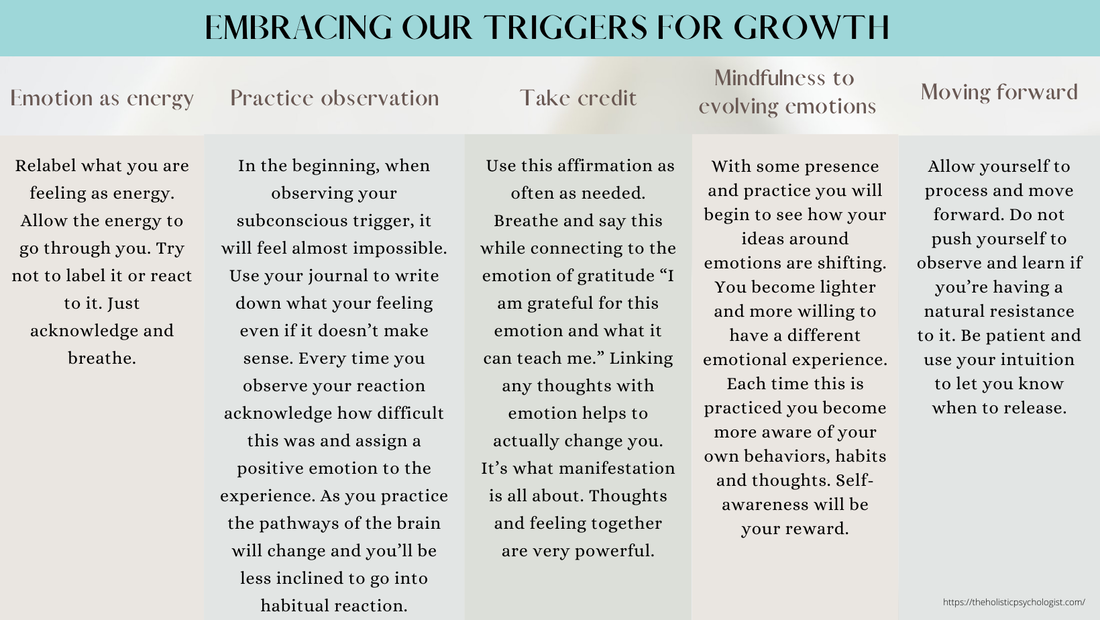Learning From Our Emotional Triggers and Self GrowthBy Laura Mass Reviewed By: Jennifer Peacock-Vauthrin R.P.C. M.P.C.C. Every one of us have emotional triggers but when and where did they begin? Surprisingly, these triggers rarely spontaneously occur. They are cued by a spark of intense emotional reaction, to something in our internal (thoughts or feelings) or external (stressful event) environment. Emotional triggers are associated with varying degrees of post-traumatic stress disorder (PTSD) – I.e. from a small child being abandoned to the stress of soldiers of war. They are not bound by time, age, sex, religion, nor lifestyle; they are suppressed emotional wounds. Because of the emotions can be uncomfortable or even paralyzing, by identifying, naming, and learning specific coping skills, we can take steps to limit the full impact of those triggers. Let us take the opportunity to “check-in” with ourselves, reflect, get the help we need and be provided with managing skills to move forward to reclaim your life – on your terms, not the emotions. For the change to take place within us, we need to be open to seeing things differently. I know it maybe difficult, however, let take a step back from the emotions and truly focus on the triggers. Here we will learn “Identify the triggers” and “Triggers for growth”. Emotional energy itself is neutral. It is the feeling sensation and physiological reaction, which makes a specific emotion positive or negative. The feeling itself is what one labels as anger, sadness, joy or fear. It is then that the interpretations or thoughts about the emotional energy which give it meaning. It is the emotions which serves as the carrier of these waves for the entire spectrum of feelings. By understanding that emotions are energy, this implies that they are fluid, always moving, meant to be felt and released. If the energy is suppressed and ignored, the true culprit originates from low emotional intelligence and stress burnout – in other words, the inability to accurately perceive emotions, in both yourself and others. Below is a guide which you will do for straight 7 days, I will ask that you email me, at Jennifer@SoulutionsCounselling.com, your main trigger and we will then book a free consultation for after your 7 days. Of course, it takes time and practice to learn how to transform the triggers into something positive. Doing the cognitive work does pays off. By addressing the triggers and discovering a new way to relate to them, we can drastically reduce their occurrences because you will start to heal the root wound that caused them in the first place.
Learning from your triggers and growing because of them is a natural process. That means, when it doesn’t feel right, don’t push yourself to address your triggers head on. Again, creating space and learning how to re-associate with your triggers is key. Go slowly and remember that the work you do will benefit everyone, including those you love the most.
0 Comments
Leave a Reply. |
Archives
June 2023
Categories |




 RSS Feed
RSS Feed



